From the Russian nuclear threat to a Fat Bear Week winner – Here’s your October 13 news briefing
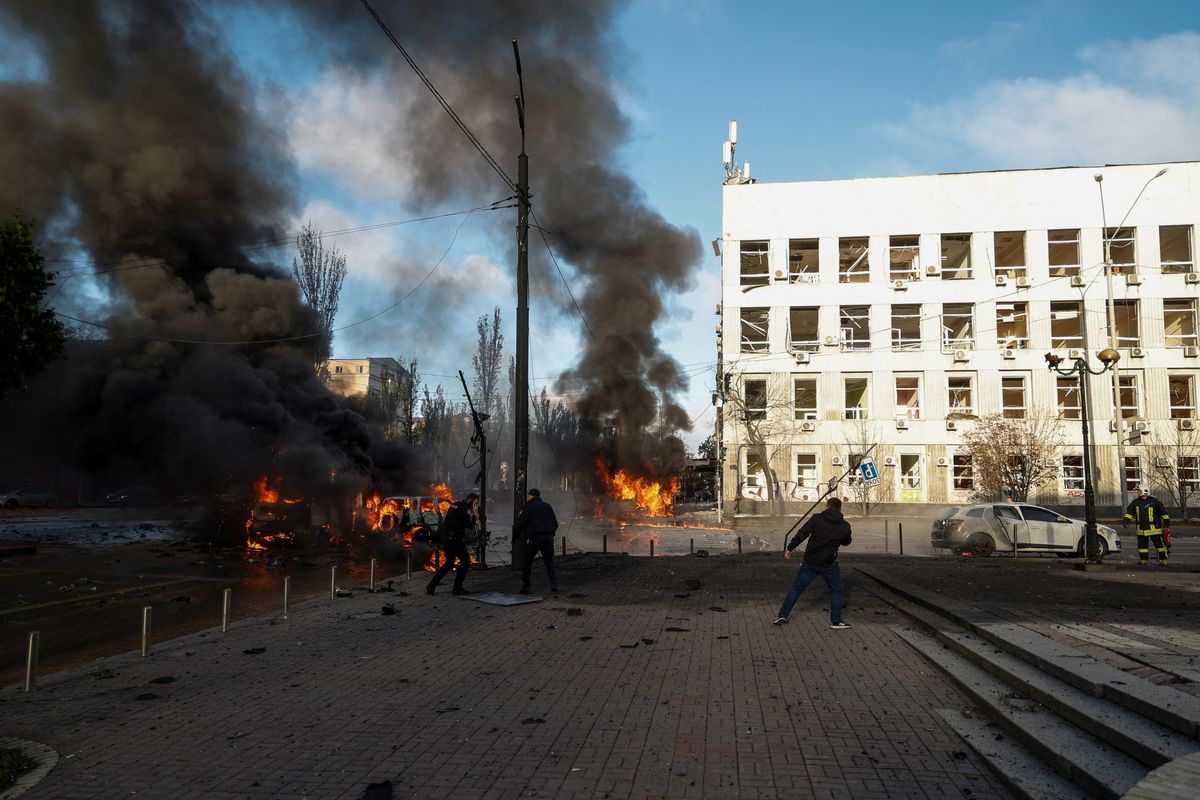
A few minutes every morning is all you need.
Stay up to date on the world's Headlines and Human Stories. It's fun, it's factual, it's fluff-free.
To start off, we’re looking into:
Will Russia use tactical nuclear weapons?
Lately, the threat of nuclear war seems closer than ever. In August, UN Secretary-General Antonio Guterres warned that “humanity is just one misunderstanding, one miscalculation away from nuclear annihilation," referring to the Ukraine war and nuclear threats in Asia and the Middle East. In a future nuclear attack, a tactical nuclear weapon would probably be used. A tactical nuclear weapon (or “non-strategic weapon") can also be called a “small nuke," but its destruction is still massive.
Earlier this month, Russian President Putin said he’s not afraid to use nuclear weapons. And recently, North Korea’s military exercises have included tactical nuclear drills. Last week, US President Biden warned that Putin using nuclear weapons could lead to “Armaggedon." Still, the debate continues, especially in South Korea, which is considering redeploying American tactical nuclear weapons or pursuing its own nuclear program in response to North Korea’s nuclear displays.
China doubles down on zero-COVID
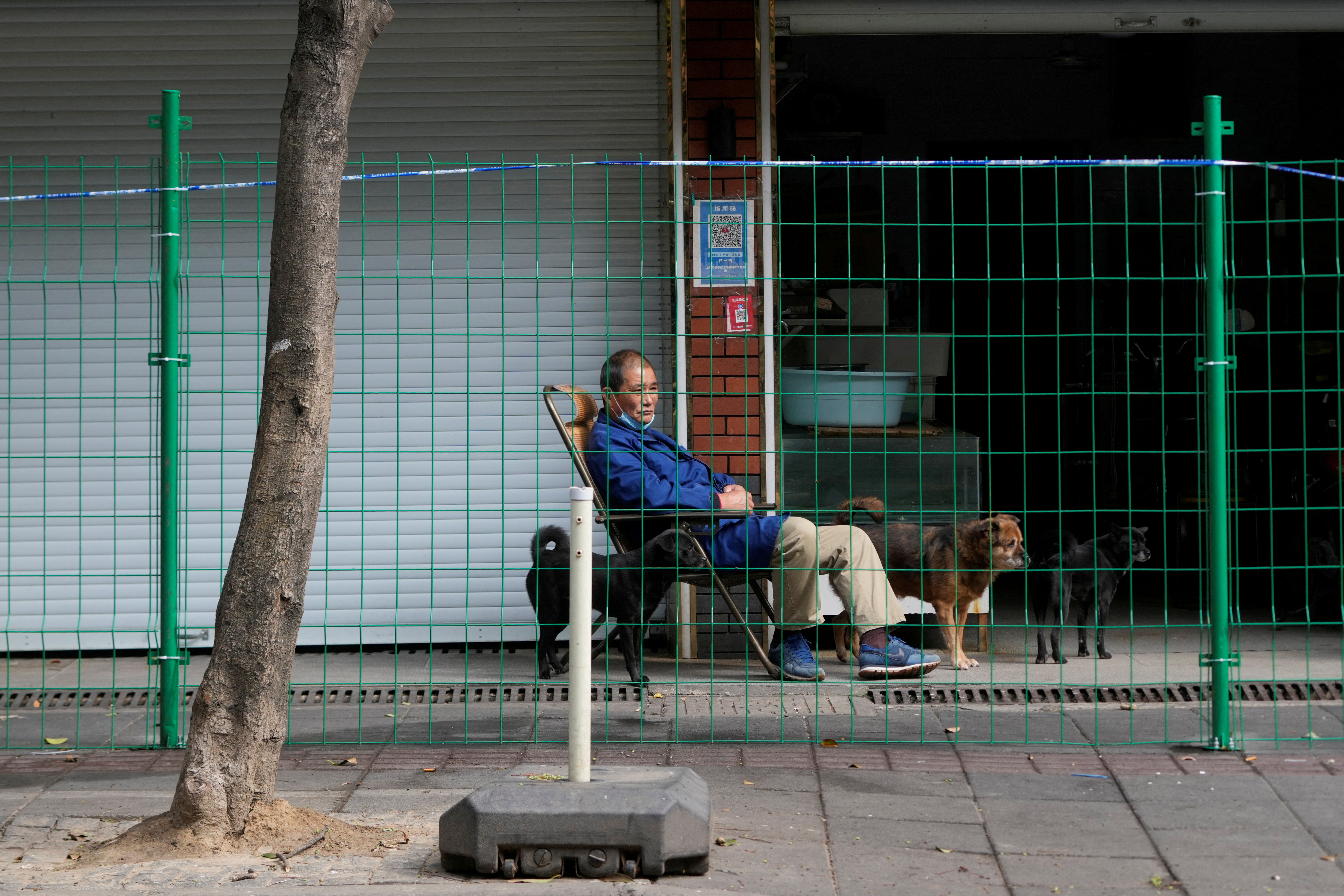
Earlier this year, the Chinese government adopted a new strategy for controlling the spread of COVID: regular mass PCR testing. Every citizen was tested a few times a week to isolate cases and cut the need for widespread lockdowns. The government had high hopes for this plan, which continues to play a big part in China’s zero-COVID approach. But, that testing strategy is facing some challenges.
After the increased domestic travel during Golden Week, there’s been a rise in COVID outbreaks in China, and infections are at their highest rates since August. And, ahead of the coming CCP congress, Shanghai and other big cities, like Shenzhen, have responded with even more testing. But, smaller cities have a harder time paying for extensive testing networks – money has been diverted from public projects to fund pandemic programs in places like Shanxi and Jiangxi. And in some cities, civil servants have had their pay cut. Plus, as of Monday, 36 cities were under various lockdowns or restrictions, affecting around 197 million people.
India’s new epidemic
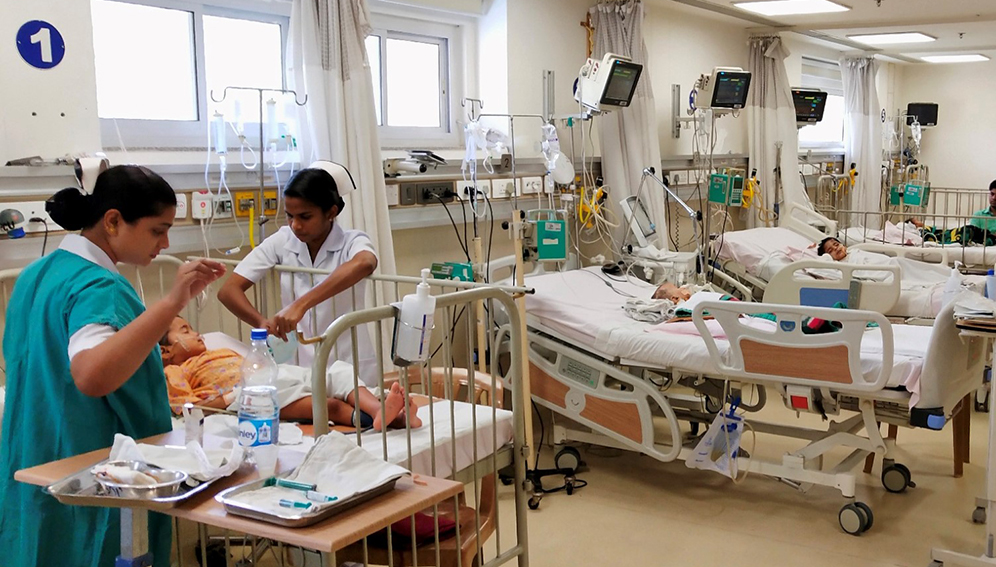
There’s a new epidemic in India – not of COVID, but antibiotic-resistant “superbugs." In plain speak, this means bacteria that have adapted to medicines and become resistant to the drugs supposed to get rid of them.
This is obviously a huge problem, and critics say it is because doctors in India were too loose with antibiotics. See, antibiotics are great for some things, but for others, they either don’t work or can have bad side effects. In fairness, Indian doctors weren’t necessarily doing this out of bad will but just because they didn’t have enough time to diagnose every patient that came through the door. And antibiotic cocktails were the easiest solution to many problems.
This new epidemic is scary, though. It means that lots of bacterial infections like E.coli, staphylococcus and even bacteria that leads to pneumonia are on the rise, and there aren’t as many resources to help patients.
To end, we’ll look into:
Why Alex Jones is being forced to pay up nearly US$1 billion
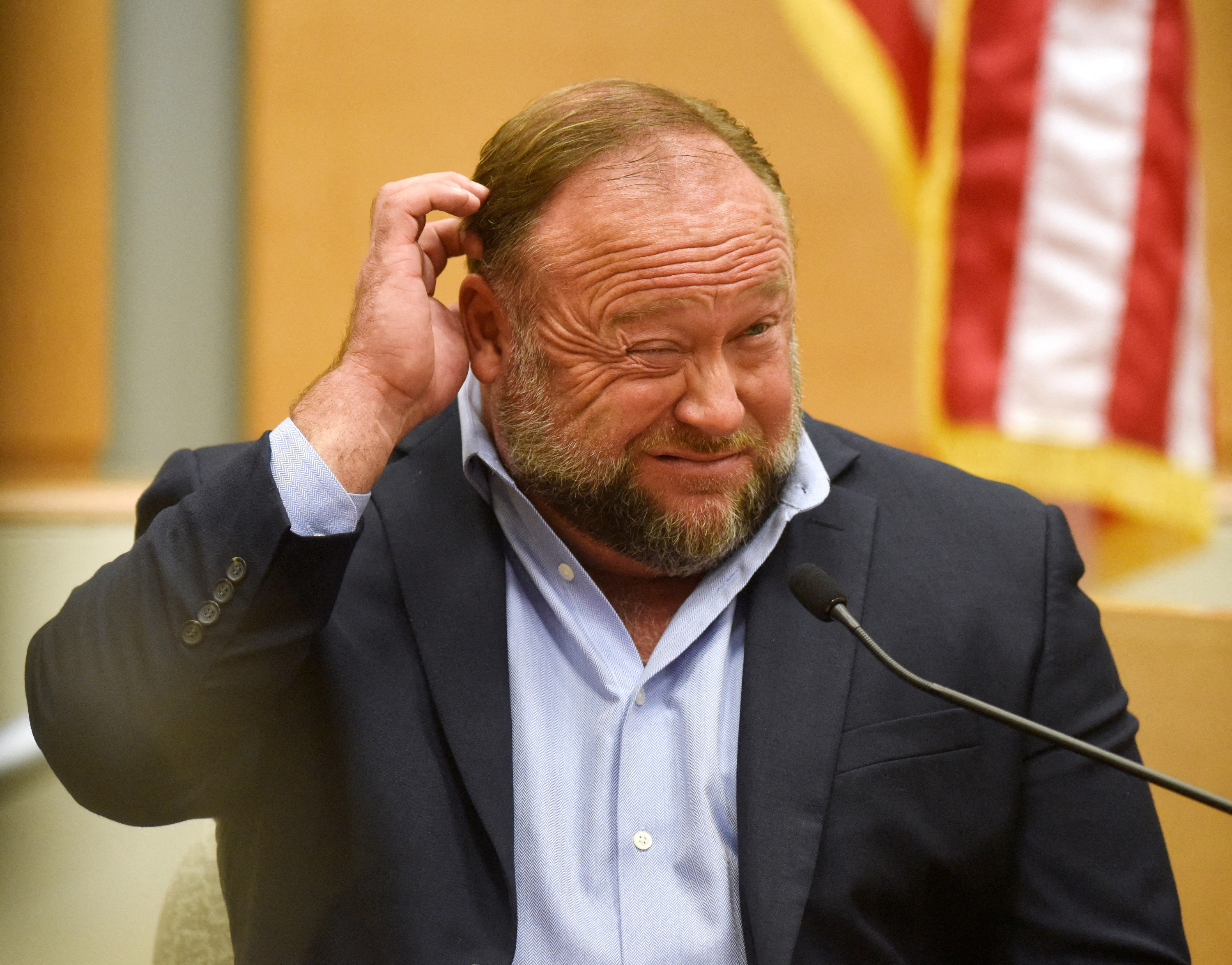
Back in 2012, a 20-year-old gunman shot 26 people at Sandy Hook Elementary School in Newtown, Connecticut. Most people understandably saw it as a horrific tragedy and mourned the death of school children, teachers and staff. But not Alex Jones – he said the attack was staged.
Jones is a conspiracy theorist who runs Infowars, a conspiracy website and talk show in the US. Jones falsely claimed for years that the attack at Sandy Hook was staged by the government in an effort to take guns away from people. He also said the victims’ families were part of the hoax and it was all an act.
His content got more than 550 million impressions across different social media accounts in the six years after the attack, and families of the victims were harassed by people who believed Jones. One parent recounted a story about learning that people were urinating on and threatening to dig up the grave of his son who had died in the shooting.
On Wednesday, though, a jury ruled that Jones, along with the parent company of Infowars, was guilty of defamation for the false claims and would have to pay nearly US$1 billion in fines to the parents and families of the victims. The trial wasn’t a short one, nor was it Jones’ first to lose on this subject, but the amount of money makes it a big deal.
There are questions about whether or not Jones has the assets to pay up. On the one hand, his company, Free Speech Systems, has filed bankruptcy in what looks like an effort to avoid financial charges against him. But on the other hand, he and his lawyers flew to court in a private jet and stayed in a villa with a private pool and tennis court.
“You have to stand up to a bully, because bullies won’t stop, especially when being a bully makes them very, very rich,” said one of the lawyers for the victims’ families. He asked jurors to come back with a verdict “that makes Alex Jones realize just how devastating his conduct has been.”
It’s safe to say that, if only for him, the verdict was devastating.
In other news …
📉Stocks: MSCI’s global gauge of stocks dipped 0.36% to 2,367.69.
📰Some specifics:
- S&P 500 slipped 0.33%, hitting 3,577.03.
- Nasdaq Composite hung in there, dipping just 0.09% to 10,417.10.
- Dow Jones fell 0.10% to 29,210.85.
- Hang Seng Index dropped 0.78% to 16,701.03.
🧠Some quick factors to bear in mind:
- Minutes from the Fed’s September meeting were released yesterday, suggesting it will probably keep hiking interest rates and keep them high until inflation starts to ease. But one comment stirred optimism that it could slow down these hikes or even reverse them if there was more market turbulence.
- And, yesterday’s September producer price index – which gauges final-demand wholesale prices – was higher than expected, jerking stocks up and down. The PPI is one inflation gauge investors keep their eyes on alongside the Fed’s rate hikes.
- US investors are still looking to a key consumer report later this week that will help inform how the Fed treats future rate hikes.
- Meanwhile, China’s markets are being affected by new COVID outbreaks. According to Nomura, 4.8% of China’s GDP was negatively affected as of Monday by COVID controls, up from 4.3% last week. Economists expect China to miss its annual GDP target this year for the first time since the early 1990s.
- In Hong Kong, stocks are closer to the bottom than the top after a 28% retreat, erasing over US$1 trillion of equity wealth this year.
👄Some comments and chatter:
- “Several participants noted that, particularly in the current highly uncertain global economic and financial environment, it would be important to calibrate the pace of further policy tightening with the aim of mitigating the risk of significant adverse effects on the economic outlook,” the Fed’s minutes stated.
- “China’s overall COVID situation appears to have deteriorated materially,” Nomura’s chief China Economist Ting Lu and a team said in a note Monday.
- “Hong Kong is cheap,” Hong, a market strategist and chief economist in Hong Kong at Grow Investment Group, said in an email on Tuesday. “But geopolitical tensions and overseas market volatility will continue to distress Hong Kong. That is the reason why this is a trade for the brave.”
🛢Oil: Oil futures fell due to concern about weaker demand and an expectations for continued interest rate hikes by central banks all over the world. US crude futures went down 2.3% to US$87.27 per barrel, and Brent hit US$92.27, down 2%.
👛Bitcoin: Bitcoin jumped 0.66% to US$19,189.90 at time of writing.
💣NATO boosts Ukraine’s defenses: As winter approaches, Ukraine is expected to continue trying to get back more territory from Russia. Now, NATO allies have announced the delivery of new air defenses and more aid after the latest Russian missile strikes.
💥Crimea bridge blast arrests: Yesterday, Russia made eight arrests related to the destruction of a strategic bridge in Crimea. Suspects include five Russians and three people from Ukraine and Armenia. Russian authorities believe the attack was organized by Ukraine, which Ukraine hasn’t confirmed or denied.
❄China and Russia expanding Arctic partnership: On Tuesday, Arctic authorities reported that China is building up a presence in the Arctic through a partnership with Russia in different areas, like multi-use ports, airfields and energy extraction. This partnership is also interested in scientific research and sharing intelligence data, but China still doesn’t have a base in Russia.
📃Suu Kyi’s sentence extended: Yesterday, a Myanmar court convicted former leader Aung San Suu Kyi of two more charges on top of prior convictions that had her sentence at 23 years. Now, that number has been raised to 26 years. These charges are thought by many to be a politically motivated attempt to discredit her and legitimize last year’s military coup.
🏦BoE to suspend pension help: In a move concerning investors, the Bank of England is ending its emergency bond-buying scheme this Friday. It was doing this to stabilize the price of these bonds, preventing a sale that might have endangered some pension plans.
⚡Energy crisis affects car output: According to S&P Global Mobility, the continuing energy crisis could start affecting car output and manufacturing in Europe. These processes could be cut by up to 40% (which is more than 1 million cars) per quarter past the end of 2023.
⛽Another pipeline leak: Poland found a leak in the Druzhba pipeline, which delivers crude oil from Russia to Europe. Now, Germany is saying that it’s receiving less oil but still has decent supplies. It’s believed that the leak was caused by accident, not sabotage.
🚀Japanese rocket self-destructs: Yesterday, Japan launched an unmanned rocket carrying satellites – the Epsilon 6 – but it wasn’t in the right position to orbit Earth. It was commanded to self-destruct less than seven minutes into its flight. This is Japan’s first failed launch in almost 20 years.
👩⚖️All of Adnan Syed’s charges dropped: Adnan Syed, whose case was made famous through the hit podcast “Serial," just had all charges dropped against him by Baltimore authorities. He was released last month but has now been cleared by DNA testing. Syed spent 23 years in prison fighting the murder conviction of a high school classmate.
🐻Fat Bear Winner: Voting for Alaska’s Katmai National Park’s Fat Bear Week has officially ended, and a winner has been crowned. The bracket-style polling campaign ended with Brown bear 747, who is an estimated 1,400 lbs (635 kg), winning 68,105 votes, beating Bear 901, who had 56,876 votes. Absolute unit.
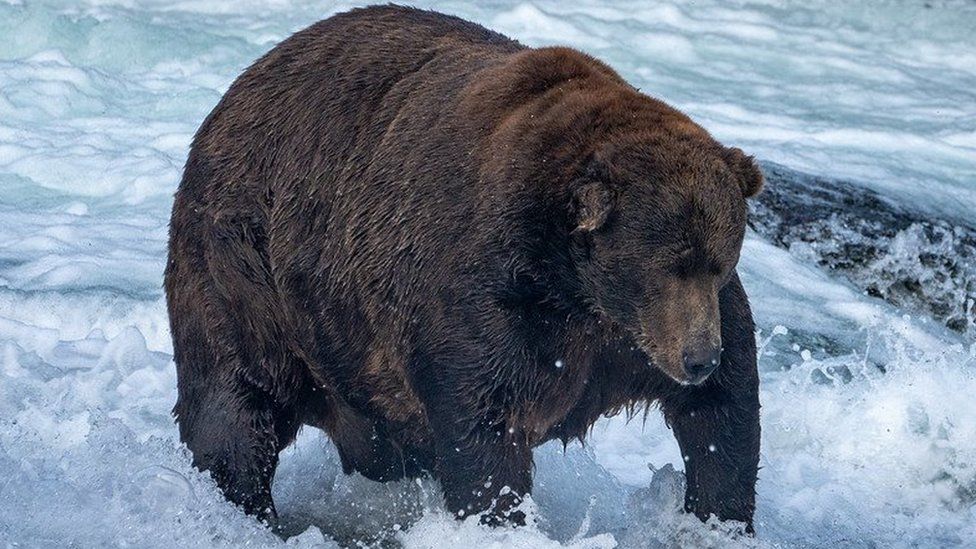
Written and put together by Jake Shropshire, Vanessa Wolosz, Christine Dulion and Krystal Lai




Comments ()